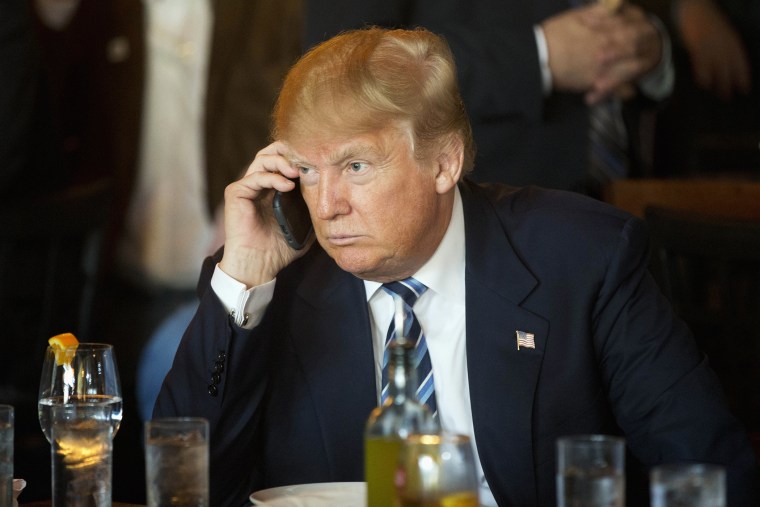A couple of weeks ago, after the mass shooting in Las Vegas, the Associated Press reported that White House aides felt anxiety over what Donald Trump might say (or tweet) about the mass murders. They were nervous, of course, because of the president's "troubled track record in such delicate moments."
As the AP explained, "Trump often has had difficulty embracing a central role of the American presidency: consoling people dealing with intense grief."
There's a growing body of evidence to bolster the point.
A Florida congresswoman said that the family of a U.S. service member killed in Niger was "astonished" when President Donald Trump suggested in a phone call that the soldier "must've known what he signed up for."Rep. Frederica Wilson told NBC Miami that she heard the president's comment to Sgt. La David T. Johnson's widow, Myeshia, on speaker phone as they traveled together to meet his body on Tuesday."He said, 'But you know he must've known what he signed up for,'" the Democrat recounted Trump saying more than once during the call to express his sympathy. According to Wilson, the conversation lasted somewhere from three to five minutes.
Myeshia Johnson has not yet spoken publicly about the call, and the White House declined to discuss the conversation, telling NBC News it's "private." For his part, Trump wrote on Twitter this morning, "Democrat Congresswoman totally fabricated what I said to the wife of a soldier who died in action (and I have proof). Sad!" (The last time he claimed to have "tapes" of a private conversation, he was lying.)
Nevertheless, if the Democratic congresswoman's account is accurate, it fits into a larger pattern in which the president's capacity for human empathy is in doubt.
Consider Trump's reactions in the wake of recent hurricanes. After Hurricane Harvey hit Texas, he marveled at the size of the “turnout” of people he met in Corpus Christi. After initially ignoring Puerto Rico following Hurricane Maria, the president focused on the island's debts to Wall Street, feuded with a local mayor, and threw paper towels to locals.
At times, he made it seem as if he were vastly more concerned with athletes engaged in a civil-rights protest than the fate of Americans on the island.
What's more, as the AP noted a couple of weeks ago, there were related incidents during the campaign.
In the summer of 2016, aides tried repeatedly to explain to Trump why his attacks on Khizr Khan, a Muslim-American whose son was killed fighting for the U.S. military in Iraq, were off-putting to so many voters. One former campaign official said Trump was unmoved by arguments about the sacrifices Khan's family had made for the country and couldn't get past the fact that Khan had spoken out against the Republican nominee during the Democratic Party's convention.Trump's staff tried to limit small, potentially emotional gatherings with supporters, knowing that Trump preferred the distance of a large, roaring crowd. In October, as he made a last-minute push to win Florida, advisers prepped Trump about the story of Miriam de la Pena, whose son's plane was shot down by the Cuban government in 1996, according to another former campaign staffer.But Trump was far more focused on the endorsement he was set to receive later that day and, as de la Pena choked up recounting her tale, his eyes wandered around the room, only turning to say "very sad story" when the tearful mother finished speaking.
One of the standard lines of defense from Trump supporters is that he's new to politics, and as the nation's first amateur president, he hasn't yet learned basic skills, such as consoling the suffering. But in this case, the defense falls short: one need not be an experienced politician to understand basic human decency.
